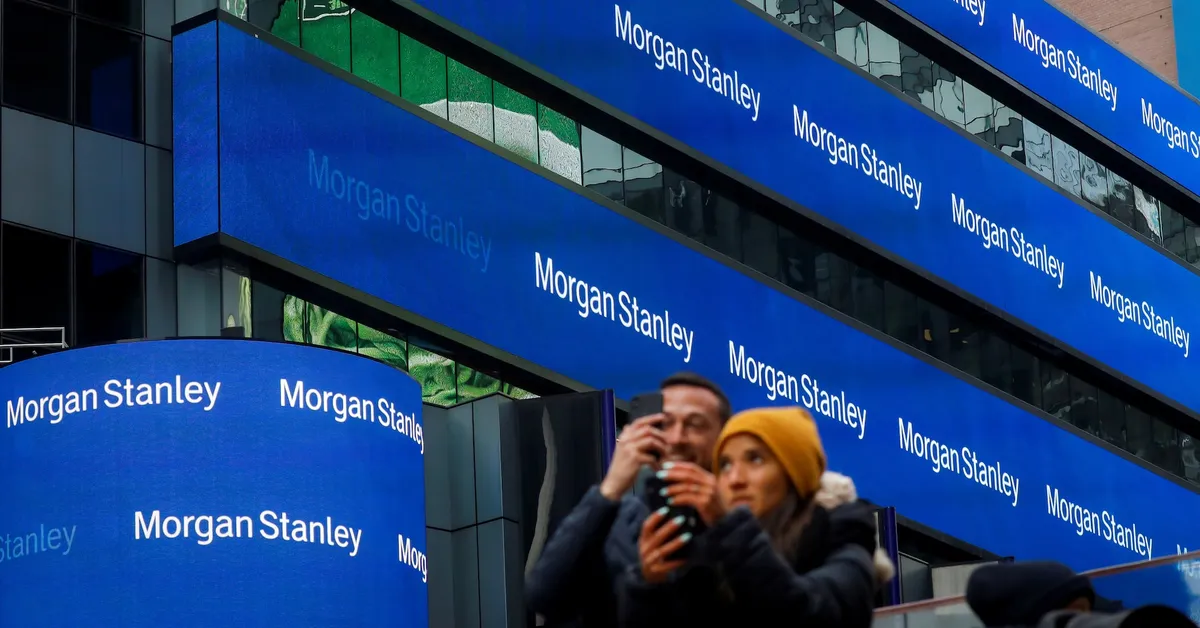
In a recent update from New York on April 11, major U.S. banks have reported profits that surpassed forecasts for the first quarter of the year. A significant factor contributing to this positive outcome was a surge in stock trading. However, bank executives cautioned about potential economic turbulence ahead, emphasizing that sweeping tariffs could introduce new risks and hinder economic growth.
Brian Mulberry, portfolio manager at Zacks Investment Management, provided insights on the current market conditions, stating, "The first quarter was a pretty good start to the year in terms of trading and even business activity." He noted, however, that the outlook for the second quarter remains uncertain, particularly regarding its impact on markets, mergers, and acquisitions.
As executives from the largest U.S. lenders shared their perspectives, it became clear that households and businesses are beginning to react to the import levies imposed by tariffs. Jeremy Barnum, CFO of JPMorgan, remarked, "You're starting to see maybe a little bit of pivoting from consumers pre-buying stuff that might be getting more expensive."
With the current level of policy uncertainty, many corporate clients are adopting a cautious approach. They find it challenging to plan for the long term. JPMorgan CEO Jamie Dimon highlighted that corporations set to report their results in the coming weeks may withdraw their earnings forecasts due to this uncertainty.
Stock performance varied among major banks, with shares of JPMorgan rising approximately 2.5%. In contrast, Morgan Stanley and Wells Fargo experienced declines of 1% and 3.5%, respectively. This mixed performance reflects the broader concerns expressed by Wall Street executives regarding the potential economic repercussions of the tariffs.
Top executives, including Dimon, BlackRock CEO Larry Fink, and billionaire fund manager Bill Ackman, have voiced concerns about the potential economic damage stemming from the tariffs. Dimon stated, "I don't usually pay that much attention to anecdotes, but this time I am." Investors were reminded of the volatility in the stock market following a significant plunge, reinforcing the notion that shifting tariff plans could threaten earnings and overall economic stability.
Wells Fargo CFO Michael Santomassimo noted that corporate and commercial banking clients are taking a step back, indicating a need for more clarity and certainty about future directions. This caution is further underscored by Santomassimo's statement that net interest income would likely fall at the lower end of the bank's guidance as market volatility increases.
Despite the challenges, investment banking has emerged as a bright spot on Wall Street. JPMorgan reported a 12% increase in fees, while Morgan Stanley saw an 8% rise in revenue. David Wagner, portfolio manager at Aptus Capital Advisors, commented, "Right now, this isn't a financial event that's going to be the genesis of the recession, and banks could be the safe space," referring to the current tariff environment.
While acknowledging the risks posed by inflation and tariff policies, Morgan Stanley CEO Ted Pick expressed a more optimistic outlook, suggesting that the U.S. economy could avoid recession. He highlighted that the bank's deal pipeline remains steady, despite some clients delaying transactions due to uncertainty.
Colin White, CEO and portfolio manager at Verecan Capital Management, aptly summarized the current situation: "The emperor has no clothes right now. It's obvious that nobody knows what's coming." As the banking sector navigates through these uncertain times, the focus remains on adapting to the evolving economic landscape.
Reporting by Nupur Anand, Saeed Azhar, and Tatiana Bautzer in New York, with additional insights from Nivedita Balu. This article has been edited by Lananh Nguyen.